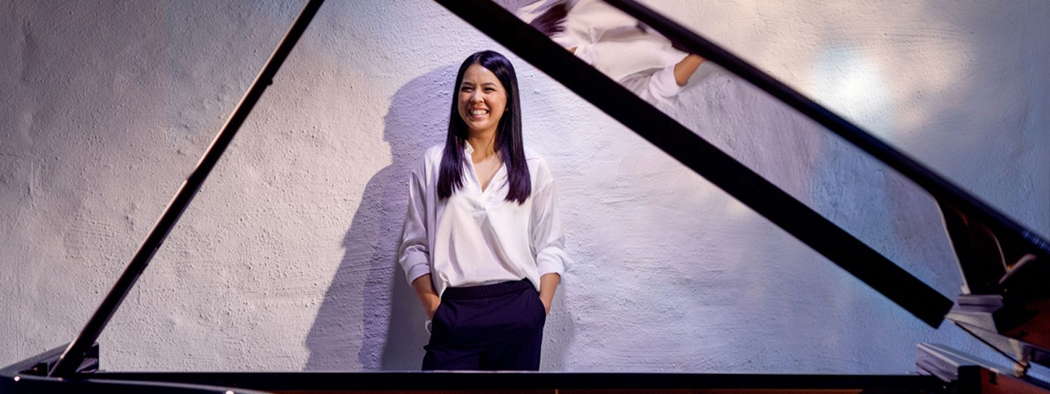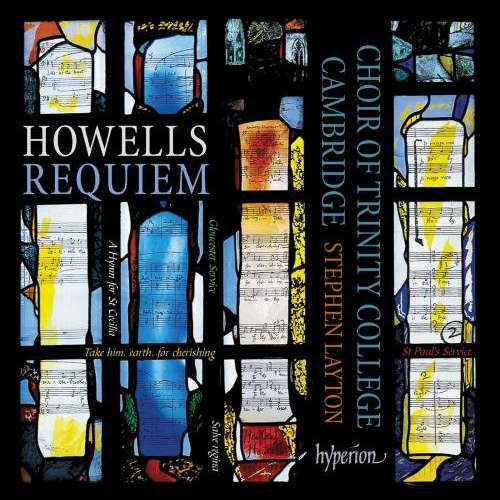 DISCUSSION: John Dante Prevedini leads a discussion about Composers, individuals or collective?, including contributions from David Arditti, Halida Dinova, Robert McCarney and Jane Stanley.
DISCUSSION: John Dante Prevedini leads a discussion about Composers, individuals or collective?, including contributions from David Arditti, Halida Dinova, Robert McCarney and Jane Stanley.
Little Short of Miraculous
MIKE WHEELER is impressed by Hanni Liang's pianism, but reports that some audience members were unhappy with her recital's lecture element
Chinese-German pianist Hanni Liang's recital got off to an unusual start - Royal Concert Hall, Nottingham, UK, 17 March 2024. Since her programme ended with Ethel Smyth's Piano Sonata No 2, she entered reading a lengthy extract from Smyth's memoirs. This was the composer at her most militantly feminist, leading naturally to Liang's own comments on the position of women in music today.

Hanni Liang (born 1993, Bielefeld, Germany)
Before the Sonata, we heard music by two composers Smyth met. Brahms' Six Pieces, Op 118, are part of that final collection of piano pieces published towards the end of his life. Liang maintained a strong current in No 1, leading to its soft ending. No 2 was confiding and reticent, No 3 robust, sturdy and assertive, with a gentle sign-off. After a mercurial account of No 4, and the quiet running and ticking of No 5, Liang entered fully into the rarefied world of the final piece, Brahms at his most intensely - well, 'innig', to use that indispensable German word for which there is really no single English equivalent. By the end of the set, Liang had the audience in the palm of her hand.
While her playing in the Brahms was engrossing, in Book 1 of Debussy's Images it was often little short of miraculous. There were times in 'Reflets dans l'eau' when she seemed to be barely touching the keys, almost as though she was producing the music by just breathing on them. In her wraith-like account of the minuet that is 'Hommage à Rameau', the more forceful passages rang out, and in her hands the buzzing 'Mouvement' became a kind of miniaturised toccata.
Liang returned to Smyth's memoirs for a further extract, before launching into the Sonata, one of three she wrote in 1877, while studying at the Leipzig Conservatoire. A striking work, it has its share of Beethoven-like moments, especially in the truculent first movement, in Liang's rhythmically robust account. The second movement's gently-lapping rhythms had a kind of wistful repose, while the third movement set off with a determination that was not a great distance from the third of the Brahms pieces. This vigorous sonata deserves a more secure place in the repertoire.
For her encore, Liang asked the audience to suggest a subject for an improvisation. Someone said 'sunshine', prompting a delectable echo of the first Debussy Image.
Some audience members were unhappy with what they perceived as more of a lecture than a recital. Indeed, it often seemed on the verge of becoming a manifesto, and the first reading from Smyth's memoirs was undoubtedly over-long. But Liang's breathtaking performances, allied to an engaging personality, won most people over.
Copyright © 30 March 2024
Mike Wheeler,
Derby UK




